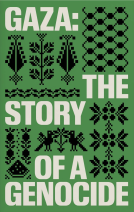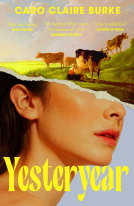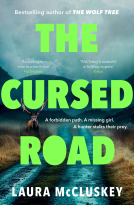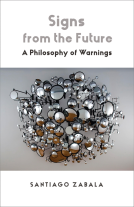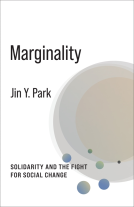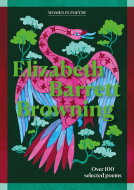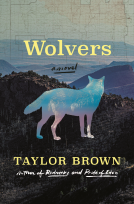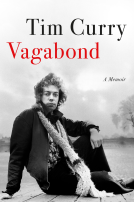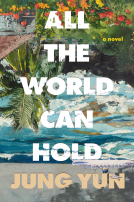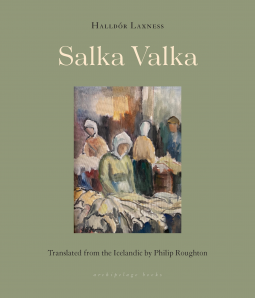
Salka Valka
by Halldor Laxness
This title was previously available on NetGalley and is now archived.
Send NetGalley books directly to your Kindle or Kindle app
1
To read on a Kindle or Kindle app, please add kindle@netgalley.com as an approved email address to receive files in your Amazon account. Click here for step-by-step instructions.
2
Also find your Kindle email address within your Amazon account, and enter it here.
Pub Date Jun 07 2022 | Archive Date Jan 16 2022
Talking about this book? Use #SalkaValka #NetGalley. More hashtag tips!
Description
A fresh translation of Nobel Prize–winning author Halldór Laxness's modernist masterpiece, Salka Valka.
A feminist coming of age tale, an elegy to the plight of the working class and the corrosive effects of social and economic inequality, and a poetic window into the arrival of modernity in a tiny industrial town, Salka Valka is a novel of epic proportions, living and breathing with its expansive cast of characters, filled with tenderness, humor, and remarkable pathos.
On a mid-winter night, an eleven-year-old Salvör and her unmarried mother Sigurlína disembark at the remote, run-down fishing village of Óseyri, where life is "lived in fish and consists of fish." The two women struggle to make their way amidst the domineering, salt-worn men of the town and their unsolicited attention, and, after Sigurlína's untimely death, Salvör pays for her funeral and walks home alone, precipitating her coming of age as a daring, strong-willed young woman who chops off her hair, earns her own wages, educates herself through political and philosophical texts, and, most significantly, becomes an advocate for the town's working class, ultimately organizing a local chapter of the seamen's union.
“Nowhere in Laxness’s novels is the conflict between the shining ideal of socialism and the dignity of individual people on plainer display than in Salka Valka… It never even occurs to Salka that the bastards might grind her down.” –- Salvatore Scibona, The New Yorker
Advance Praise
"A brooding novel of boreal discontentments by the Nobel Prize–winning Icelandic writer. Sigurlína Jónsdóttir has always been down on her luck. She decides to leave the frozen north coast of Iceland with her 11-year-old daughter, Salvör Valgerður, or Salka, whose father is unknown to her—and to Sigurlína, a sometime prostitute, as well. They get just a few miles south to a ramshackle fishing village, where they discover the manifold class divisions of early-20th-century Iceland. . . There’s a poetry to Laxness’s depiction of a frayed mother-daughter relationship . . . [Salka Valka is] full of his trademark intersections of politics and religion." – Kirkus Reviews
Available Editions
| EDITION | Other Format |
| ISBN | 9781953861245 |
| PRICE | $23.00 (USD) |
| PAGES | 550 |
Average rating from 9 members
Featured Reviews
What kinds of psychic wounds are inflicted when one grows up as a bullied outsider in a small village? What happens when ideals crash into reality? How do people deal with the hypocrisy that sometimes manifests when what we believe in collides with what we want? These themes are explored in the book, Salka Valka, an Icelandic classic, originally published as two books in 1931 and 1932, later combined into one book, and presented here in a new translation.
We meet the title character when she is about 10 years old. She and her mother, Sigurlina, are getting off a boat in a small Icelandic fishing village. They were going from the north to Rekjavik, but when the money ran out, their journey ended. This small village revolved around fish, which is owned by a wealthy man who also owns the shop. Fish processors are not given wages, but credit at the shop, which ensures they will always be poor and in debt. The villagers are not used to outsiders and are not inclined to help them out. Sigurlina ends up at the Salvation Army, which provides her with a community, but makes her more of an outsider. Meanwhile, Salka is brutally bullied and develops a thick skin. They are taken in by an elderly couple who need help on their farm after their son brings them there, but he is an alcoholic who can be violent and has a disturbing attraction to Salka. At the end of the first section (originally the first book), Salka is 14.
When section two opens, Salka is grown. She owns a share in a fishing boat and has organised a fisherman’s union. This leads to unintended consequences and more poverty for the processors. The atmosphere is perfect for the Marxists who come to the village with big (unrealistic) plans, one of whom is a former resident and friend of Salka’s—he taught her to read when she’d first arrived. By now the Salvation Army no longer has a presence in the village and the conflicts become more political. The author does a good job of showing how, for some people, political ideas become a sort of religion and how in both areas, the conflict between ideals and reality can be difficult, both in public and private life.
I could relate to much of what was going on in this book, having moved to a small, rural area when I was 14 and being a bullied outsider. I’ve also had a lot of people in my life who were very zealous in their religious and/or political views. He describes these things well. There are footnotes explaining some of the more obscure Icelandic poetry and folklore,as well as the religious texts.
This is not a cheerful read, but it was a really good book and I am glad I read it.
 Vicky p, Reviewer
Vicky p, Reviewer
This is a new translation of a classic. Salka Valka is a role model for any woman. The child of a single mother brought up in the harsh conditions of an Icelandic fishing village, Salka Valka forges a file for herself that follows her own rules rather than those of the world around her.
What an amazing novel! This is my first Halldor Laxness and I will definitely read more. In this book he describes poverty and workers struggle with a main character who is a strong and individual young woman. Salka Valka is 11yo when she arrives with her mother in a poor fishing village. Her mother wanted to go as far south as Reykjavik but couldn’t afford it. The poverty, the hard work, the nice life Bogeson, the owner has (there was one brilliant line about how he needed the milk of five cows for his indigestion, while the poor don’t have milk for their children!) are all contrasted. There’s great descriptions of the landscape and weather, and some interesting characters. It gets a bit bogged down in politics in the second half but still an excellent read.
 Mandy J, Reviewer
Mandy J, Reviewer
Salka Valka, published in 1931-32 but set in 1910-1920, by acclaimed Icelandic author Halldor Laxness opens with Sigurlina Jonsdottir arriving one mid-winter night with her 11-year-old daughter Salka at a remote Icelandic fishing village. She had wanted to travel on to Reykjavik but had run out of money so the pair are forced to stay in the village. The first half of the book focuses on village life and how the two manage to make their way as best they can. Salka Valka is a strong-willed and determined child and grows into an equally strong-willed and determined young woman, who refuses to bow to societal pressure and insists on being independent. The second half of the novel opens 10 years later after her mother’s death and by now Salka has become a leader and organiser of the local fishermen’s union. I’m not going to go into details about the plot, so suffice it to say that the novel is a wonderful character study of a remarkable young woman who defies gender norms and forges her own path through life. Laxness’ own political views are much in evidence in this second half and it’s worth looking at those when reading the book, as they inform the narrative throughout. It’s a politically committed novel and sometimes gets bogged down in in the politics, occasionally feeling didactic. But the reader’s engagement with and sympathy for Salka largely overcome this. It’s a vivid portrait of Icelandic life at the beginning of the 20th century as modernity and progress gradually seep into a traditional and established society. Many themes are brought in – sexism, feminism, gender, abuse, inequality, prejudice, capitalism, Bolshevism, Communism – the list goes on, making this a fascinating and comprehensive picture of a small community and an unforgettable heroine.
 Meike S, Media/Journalist
Meike S, Media/Journalist
Nobel Prize in Literature 1955
That this is considered a lesser work by Laxness shows the capabilities of the great national poet of Iceland - but it's also striking to notice that while his other writing often focuses on men, this is more or less a feminist coming-of-age tale about the resilience of the title-giving Salka. As a child born out of wedlock, her mother wants to travel from the North to Reykjavik, but gets stuck in a small fishing village at the fjord due to money troubles. Salka grows up in dire poverty, humiliated by townsfolk who look down upon her mother, and experiences male assault. But she is strong, smart and determined, becomes the secretary of the newly founded fishermen's union and falls in love with a socialist activist...
The novel ponders many topics that are typical for Laxness: Most importantly, the strength and resilience of the Icelandic people surviving in a harsh environment, their wish to live independently and freely (the novel is set during Danish colonialism), the spell of religion and ideology, and socialism versus capitalism - yes, the small fishing town becomes an ideological battleground of the Russian vs. the US-American system, torn between collectivist and individualist ideas. And there's another aspect that's typical for Laxness, and it's his finest trait as a writer: His characters are terribly messy, they make mistakes, they strife for false gods, they betray each other, and still, he loves all of them. He does not write to lament the faulty species we're a part of, he reflects how hard it is to be a human person.
The best example is probably Salka's mother, Sigurlina, who makes bad decisions, but also becomes the victim of the patriarchy, misogyny, and human cruelty - Laxness, born in 1902, points that out. Salka herself is torn between her almost-stepfather, an alcoholic who came into money, and the love of her life, a Marxist activist - and both of them commit terrible crimes against women. It's startling to read how both men ultimately dream of strong-minded and brave Salka submitting to them, of giving herself up to them: They (and thus the patriarchy as well as capitalism and Marxism) want to control her, but she dreams of being free - and wonders whether this is even possible for a woman, and one of such little means in a remote part of the industrializing world for that matter.
So I will definitely follow along with my project to read the complete Laxness, and I can't wait to finally get back to Iceland very soon. It's also time that Sjón becomes the second Icelander to win the Nobel.
Salka Valka by Halldor Laxness is a mesmerizing and gritty tale that delves into the harsh realities of life in early 20th-century Iceland. Through the eyes of the resilient and determined protagonist, Salka Valka, Laxness paints a vivid picture of the struggles faced by the working class and the relentless fight for survival. The atmospheric descriptions transport readers to the rugged Icelandic landscape, while the complex characters evoke a range of emotions. Laxness's prose is both poetic and raw, capturing the essence of human resilience and the indomitable spirit of a young woman. Salka Valka is a timeless masterpiece that showcases Laxness's skill in portraying the human condition.
 Reviewer 740604
Reviewer 740604
the different world of this story is immediately shown to the reader skillfully, we are in a cold place, and it is different but also has many of the same elements. our curiosity is peaked as get to embark on the journey with the characters interacting with the natural world around them and its often harsh conditions. The story takes us on a journey and is skillfully told
Readers who liked this book also liked:
Edited by Fatima Bhutto and Sonia Faleiro
Essays & Collections, Multicultural Interest, Politics & Current Affairs
Laura McCluskey
General Fiction (Adult), Mystery & Thrillers
Santiago Zabala
Nonfiction (Adult), Politics & Current Affairs, Religion & Spirituality
Karima Moyer-Nocchi
Cooking, Food & Wine, History, Nonfiction (Adult)


